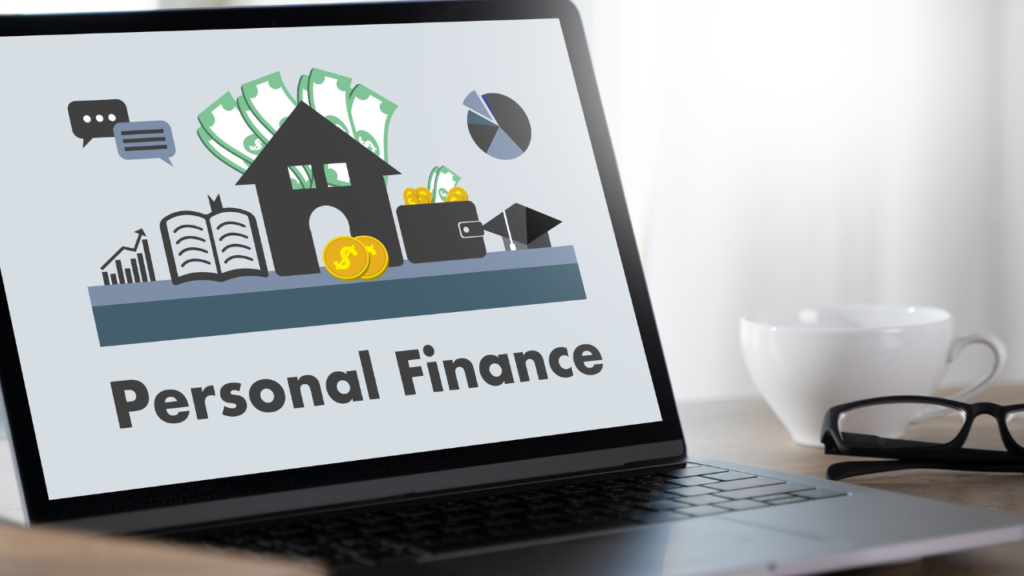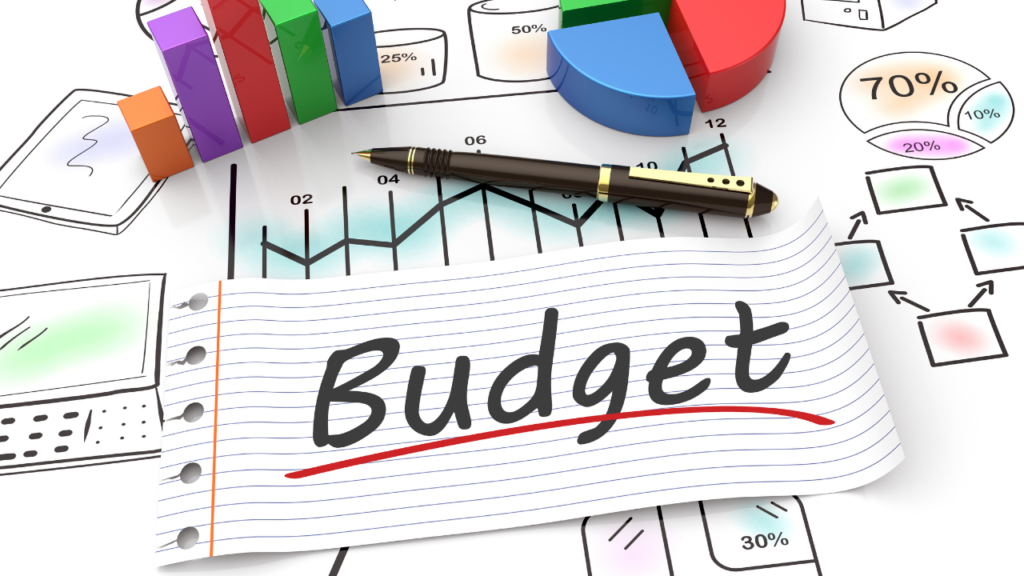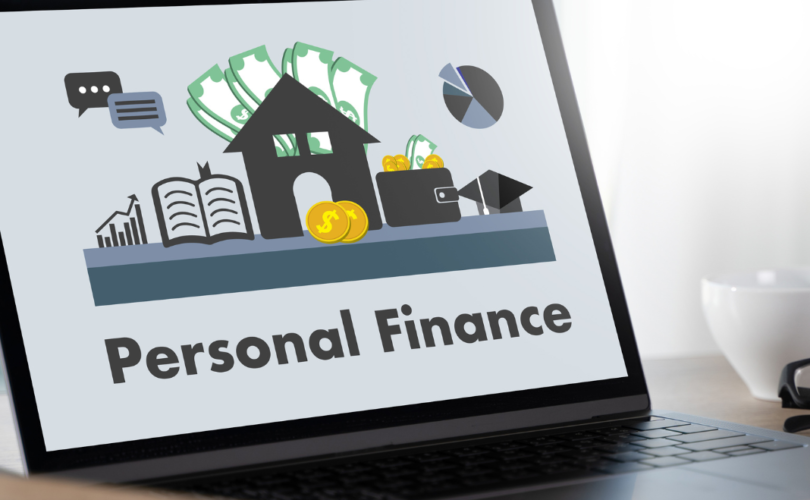
The longer we age, the more knowledge we get in terms of personal finance and money management. Personal finance may be intimidating at times. It appears to be a pretty convoluted riddle at times. While there are no financial hacks that will suddenly add money to your bank account, there are several personal finance hacks that can assist you avoid money leaks.
Here are a few suggestions and tactics you can start using right away to keep your personal finances on pace and secure your financial life.
1. Adopt a Budget:
Everyone makes and spends money, but few realise that budgeting is essential for proper financial management. Create a workable budget based on your monthly income and spending. With some hands-on practice, you’ll see that budgeting isn’t such a terrible instrument. A budget can assist you in allocating your money among several categories such as spending, savings, and investments, allowing you to make the greatest use of what you earn.

Making a budget is more than just a personal finance advice; it’s a strong tool that can help you remain on target with your money on a monthly basis. Your budget tells you precisely where your funds are going and assists you in plugging cash leaks each month.
When budgeting, employ the tried-and-true 50-30-20 rule, which states that you should set aside 50% of your income for essentials, 30% for enjoyment and leisure, and 20% for savings, investment, and debt reduction. If you wish to pay off your debt faster, you can transfer some monies from the 30% part to the 20% portion. With a budget in place, you may cater for required costs while eliminating those that just deplete your money. Your savings will grow over time, and your finances will stabilize.
2. Save first and spend later:
The above-mentioned rule specifies 50-30-20 for a sequence of numbers. In fact, the 20% portion arrives first. That is, you must initially preserve 20% of your earnings. Then go to the 50% portion, followed by the 30% portion. This is one of the most fundamental personal finance recommendations that every person should be aware of. The more money you have, the more inclined you are to spend; the less money you have, the less inclined you are to splurge. The most effective method to accomplish this is to systematize or automate your savings. Set up a standing instruction with your bank to move at least 20% of your net monthly income into your savings and investment accounts within 5 days of your salary.
3. Take a money saving challenge:
Develop a money-saving challenge for yourself. Vow to save “x” amount of money for “y” reason over the course of 90 days and keep track of what you’ve accomplished. Keep this money in a different account where you don’t do anything else, or in an account with extremely few transactions. Perhaps you can include your partner in this challenge as well. The further the challenge lasts, the more exciting it is. You may also put anything that keeps you inspired into this challenge. The end goal is to save money. Money tasks not only help you save money, but they also develop commitment in you. This newly acquired discipline may now be applied to various personal financial hacks and concepts.
4. Consider a side-hustle:

One of the most effective personal finance or money hacks is just having more of it, which itself is money. Seems simple enough, but how precisely can we have more money? Start a second business to augment your existing income. In today’s world, there are several venues accessible that allow you to display your abilities while still crushing it on the way. You may work as a Freelancer for any of your skills or capabilities, and you can sign up for various freelancing sites to be discovered and get job deals to deliver.
But are you that type of person who is still unsure of what to begin as a side gig? Create a blog. Blogging is an apparent choice and a fantastic place to start. A blog might be your first step toward doing something about which you are genuinely enthusiastic and will offer you satisfaction. You get to write on subjects that interest you while also having the ability to assist numerous others. Furthermore, the benefit here is that you may blog for very little or no expense.
5. Adopt a smart spending habit:
Every now and then, you might find yourself on an e-commerce site looking for deals and spending money on stuff that isn’t required for you (a research found that you won’t even utilise half of the items you buy on these deals). These deals do nothing more than increase your expenditure and bring no worth to you or your pocket.
A wise spender does not succumb to such enticing offers and does not engage in impulsive purchases, especially when they do not have the financial means to do so. But it doesn’t mean you should beat yourself up and stay much below your means. On the contrary, it entails being frugal with your money; reduce needless subscriptions that you rarely watch since you don’t have time to see them. Preparing a shopping list of needs and purchasing them from a neighbouring store rather than a supermarket is another way to spend wisely.
Another approach is to pay for your purchases in cash. Despite the fact that we are going toward a cashless economy, when you use cash for purchases, you actually open your physical wallet rather than merely swiping or touching a card or tapping a phone. When you pay with cash, you’re considerably more inclined to think about whether you truly need that thing. This type of notion does not enter your head when you make a digital transaction.
6. Set up an Emergency Fund:

We must be equipped for any terrible events that may occur in our lives. The concept is straightforward: save up some money for a rainy day. These include medical bills, job losses, bereavement, vehicle and house repairs, and other unanticipated expenditures, among other things. To deal with these unforeseen expenses, we need to establish an emergency fund. Establishing a contingency fund is an essential step and a significant personal finance tip for avoiding additional debt. A decent rule of thumb is to have at least six months’ worth of spending in an emergency fund. This six-month allocation should include any mortgage payments or any loan EMIs, as we must pay EMIs no matter what occurs in our lives.
Another thing to bear in mind is that this contingency fund should not be immediately available to us, or else we may be inclined to spend it. This emergency fund should also be liquid enough to provide us with some returns. So, putting it in a recurring deposit/fixed deposit or putting it in a debt mutual fund or liquid fund can help you generate some returns and preserve your money from losing value over time due to inflation. I have already written a detailed article on Emergency Fund and you can have a read through it here.
7. Try to avoid debt or manage your debt smartly:
Borrowing has become simple due to increased rivalry among lenders and quick credit availability. Furthermore, growing inflation and the cost of living provide you even more reasons to use debt to achieve your goals, such as purchasing a car or a home. So you can reasonably claim that borrowing money has become a necessary component of modern living. You take out many loans to achieve various dreams since you can’t afford them all with your savings alone. Then comes the repayments. If you bundle your loans with a credit card, your monthly repayments may exceed your capacity to repay. Hence, one of the finest personal financial hacks is to handle your debt wisely.
One excellent option is to combine your debts into a single low-interest loan and use it to settle all of your liabilities. As a consequence, you cancel several loans and lessen your load; you payback a single low-cost loan and save money on interest; and you utilise the difference between your previous and present monthly cost of the loan to prepay or foreclose the existing loan to become debt-free sooner.
If you are unable to combine your debts into a single low-cost loan, another option is to knock off the higher loan first. By doing so, you might save thousands of rupees in fees and interest over time.
You may also use the snowball strategy to repay your debt, in which you address the lesser loan first (regardless of interest rate) and then move on to the larger loans, and so on. This also functions effectively, and the most essential thing is to choose and adhere to a debt repayment plan. In general, it is preferable to get out of debt as soon as possible.
8. Learn to Invest:

Nine out of ten millionaires believe investment is a significant portion of their overall portfolio. So we can surely heed their advise on this. Investing may be frightening and daunting for some of us. Starting modest is a smart approach to get your investing started. You may even automate your savings by setting up a standing order to a different account within the first few days of receiving your paycheck. Begin small, based on your individual investing goals, and let the money work its magic for you over time.
When it pertains to investing, the genuine personal financial hack is to maximize your retirement money every year. When you consider the tax benefits, you obtain a significantly bigger return.
9. Understand Asset Allocation while investing:
This is especially critical if you undertake any form of investment on your own. Many financial professionals highly advise that your asset allocation and investment strategy come before your real investments. Your asset allocation is solely determined by your age and risk tolerance. You must pay close attention while developing your investment strategy and integrating it into your broader investment plan.
You must also comprehend how to rebalance your portfolio. Rebalancing is essential for adhering to your asset allocation goals. Again, if you plan to invest on your own, you must learn these ideas.
If you can afford it, employ a financial advisor to help you with your investments. Certified financial planners are fantastic tools for assisting you in preparing for your financial journey ahead. Do your homework and choose the best professional for you. You’ll want a person who thinks long term and prioritizes their clients over their own need for immediate money. Look for a consultant who will tell you what actually does work and what is ideal for you.
10. Keep a watchful eye on your finances by maintaining certain financial goals:

Simply adopting the money management methods outlined above without analyzing the outcomes is a waste of your time and work. It is possible that it may undermine the goal of restoring your personal finances. There are several methods for keeping track of your finances. To begin, you may utilize an excel spreadsheet, and then progress by using personal finance applications that provide end-to-end financial management solutions while providing you complete control.
Setting financial objectives gives your savings a clear purpose and provides encouragement to keep saving regularly. Here are some examples of savings goals:
- Saving for a down payment on a new house;
- Saving for a family trip;
- Saving to begin a business or quit your employment; and
- Saving to establish a specific amount for emergency money.
Have a goal, no matter what it is. Goal-setting allows you to track your performance and see the brightness at the end of the tunnel.
Once you’ve completed a task, treat yourself to keep yourself encouraged. Rewarding oneself might include taking a trip of a lifetime or considering purchasing a new gadget such as an iPhone or a new bike that you have desired for some time.
Conclusion:
We must recognize that excellent financial health has a considerable and direct influence on your total well-being. The financial hacks listed above are not exhaustive, but they should assist the majority of you make sound financial choices. When it involves personal finance, we should develop our own rules because each person’s situation is unique. Furthermore, there is so much inaccurate information accessible nowadays, as well as those seeking to make a profit off of you. Conduct your own analysis and proceed with caution on your path to financial freedom.






